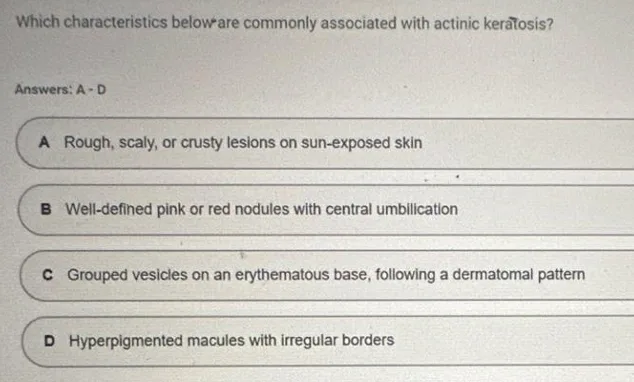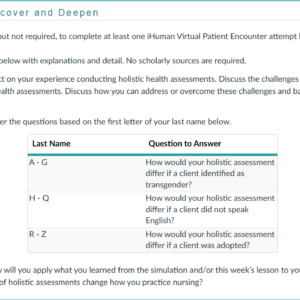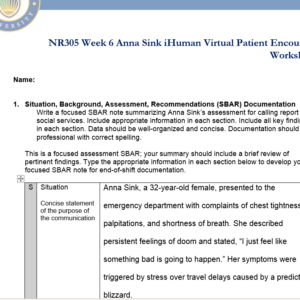NR507 Week 8: Final Exam (all 100 questions and answers)



A client with myasthenia gravis (MG) presents with Class II symptoms. Which of the following manifestations is most likely to be observed in this patient?
-
A. Ptosis and diplopia due to ocular muscle weakness ✅
-
B. Severe muscle weakness affecting the respiratory muscles
-
C. Proximal muscle weakness and difficulty rising from a seated position
-
D. Difficulty swallowing with occasional choking
Which of the following statements best describes the role of the hypothalamus in hormone regulation?
-
A. The hypothalamus receives sensory information and integrates it to regulate hormone secretion from the pituitary gland ✅
-
B. The hypothalamus stores and releases hormones produced by the adrenal glands
-
C. The hypothalamus directly produces and releases hormones into the bloodstream
-
D. The hypothalamus controls the synthesis of insulin in the pancreas
Which of the following risk factors is most strongly associated with the development of esophageal stricture?
-
A. Chronic gastroesophageal reflux disease (GERD) ✅
-
B. Regular intake of nonsteroidal anti-inflammatory drugs (NSAIDs)
-
C. Long-term cigarette smoking
-
D. Eating frequent citrus fruits
What characteristic feature distinguishes alcoholic from non-alcoholic fatty liver disease (NAFLD)?
-
A. Association with excessive alcohol consumption ✅
-
B. Accumulation of fat in hepatocytes
-
C. Fibrosis predominantly in the perivenular areas
-
D. Presence of hepatomegaly
How does the demyelination seen in multiple sclerosis (MS) differ from that observed in Guillain-Barré syndrome (GBS)?
-
A. MS involves demyelination in the central nervous system (CNS), while GBS involves demyelination in the peripheral nervous system (PNS). ✅
-
B. MS primarily affects sensory nerve fibers, while GBS primarily affects motor nerve fibers.
-
C. MS results in axonal degeneration along with demyelination, while GBS is primarily characterized by demyelination without significant axonal damage.
-
D. MS is characterized by patchy, multifocal demyelination, while GBS involves diffuse demyelination along nerve roots.………….please purchase this entire exam at $50 only





Reviews
There are no reviews yet.